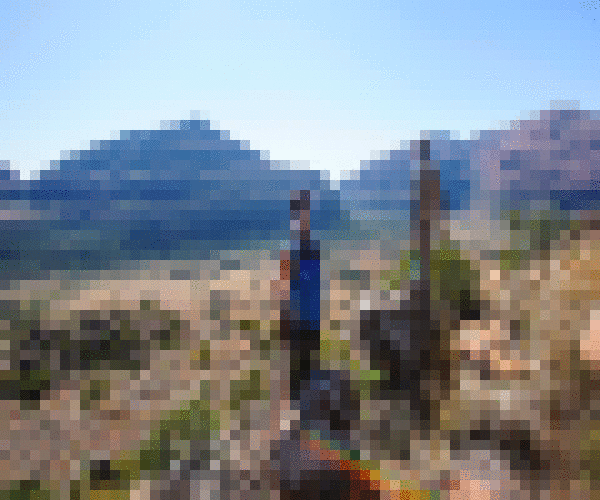
How a Grain of Salt Can Improve the Travel Industry in Limpopo, South Africa
By Kelley Louise
Salt is one of the most common ingredients, routinely found on the tables of restaurants and in the homes of families around the world. But how often do you stop and consider the origin of such a simple ingredient?
In the Limpopo region of southern Africa, along the African Ivory Route, lives the Baleni community. Notably, a group of women in Baleni mine salt from a natural hot spring in the region – a tradition their community has been practicing for more than 2,000 years.
“The phrase ‘going to the salt mines’ means that you are going to do some hard work,” Eleanor Muller, the marketing and media liaison for Transfrontier Parks Destinations (TFPD), explained. “Once you have spent an afternoon with those ladies, you have a great appreciation for what it takes to harvest salt.”
Travelers have the opportunity to learn about the women of Baleni through TFPD. Following the learning-based tourism program, travelers can connect with locals at dinner, hosted in a local home. “You have this multi-layered ability to integrate and be involved with the community,” Muller said.
Photo by Louise de Waal, courtesy of Transfrontier Parks Destinations (TFPD)
Finding the Off-The-Beaten-Path Adventures
Limpopo is just one of the regions tourists can visit through TFPD. The sustainable travel company provides an easy-access way for travelers to connect with local communities away from the traditional tourist destinations in Africa.
“Even for South Africans, it is an undiscovered part of the country,” Muller said. “It truly is off the beaten track. This is not the road most traveled.”
Photo courtesy of Transfrontier Parks Destinations (TFPD)
But while the destinations contain many unknowns for even the well-traveled tourists, the experiences from TFPD are far from a ‘discovery’ of indigenous communities. The local communities – who have developed community-based tourism initiatives in thoughtful and sustainable ways – have a multi-layered approach to integrating both tradition and modernities.
“This is the part of the country to visit if you want to get to meet the people of the old Africa and to understand how people who still have older traditions are living in a modern environment,” Muller said. “They practice their craft and they hand their knowledge down to generations. But that doesn’t mean they don’t have modern (technologies) like cell phones.”
Photo courtesy of Transfrontier Parks Destinations (TFPD)
Culturally Immersive Opportunities – From Lodging to Experiences
TFPD offers accommodation options that range from !xaus Lodge, one of the most remote lodges in southern Africa, to Witsieshoek Lodge, the highest situated lodge in the country (at 2,200 meters above sea level). Witsieshoek Lodge is famous as the trailhead for the hike to the top of the Drakensberg to reach Tugela Falls, the second highest waterfall in world.
Experiences through TFPD are culturally immersive and community-oriented. For example, travelers can connect with local artists, such as learning the basic techniques behind regional art, purchasing handmade crafts or learning about the traditions behind music.
“It’s not just a case of coming and looking and buying a piece and moving on; you are learning a skill and perhaps understanding that it’s harder than it looks,” Muller said. “The single most important thing is that the tourist has a chance for authentic engagement with local people in an environment that is both comfortable for the locals and for the tourist.”
Photos of !xaus Lodge* by Celeste McKenzie courtesy of Transfrontier Parks Destinations (TFPD)*
Supporting Locals Through Tourism
Curating experiences that are comfortable for the traveler that are simultaneously impactful for the local community are a core part of the vision of TFPD.
“There is a growing understanding of the important economic role that tourism is playing in our country as a whole. We are working very hard to ensure that people in remote areas also have access to the benefits of tourism,” Muller said.
TFPD prioritizes employment from the local communities, implements environmentally-conscious practices, a small percentage from every stay goes into a community development foundation and more.
“The thing that often surprises tourists is how little tourism dollars can go very far,” Muller said. “The sum of your little expenditure and the next person’s suddenly turns into enough money to send someone’s daughter to a university.”
Photos courtesy of Transfrontier Parks Destinations (TFPD)
In the example of the women who mine salt in Baleni, the positive impacts are clear and measurable. Muller explained that when they first launched the tours in the community, there were only five women who were practicing the tradition – a number which has since grown more than 5x to a group which is now comprised of 32 women. Tourism is playing a tangible role in preserving ancient traditions.
In addition, the tours have directly contributed to an economic boost. Salt harvesters have doubled the price that they sold their salt at, and have also discovered new markets (for example, the salt is now being purchased from Michelin star restaurants), and additional revenue streams have opened up (such as when travelers purchase locally crafted, handmade bags to store the salt).
When something as simple as salt can change a community for the better, there’s a lot to be said for the power of our everyday actions. TFPD offer travelers a unique lens into less-visited communities, as well as an opportunity to support local communities.
For the adventurer seeking the road less traveled, the experiences are bucket list items. “Come with a sense of adventure,” Muller said. “Pack memory cards, a power bank for your cell phone… but whatever you do, I’d come.

Kelley Louise
She's the Marketing Maven at Lokal and a travel entrepreneur passionate about storytelling and social good - you can find more from Kelley over at The Culture Collective and Impact Travel Alliance where she's working to transform the travel industry.